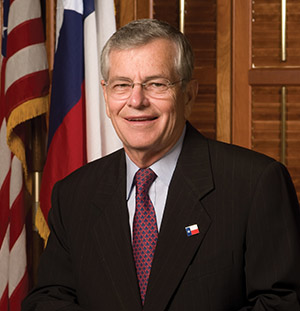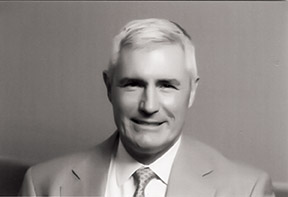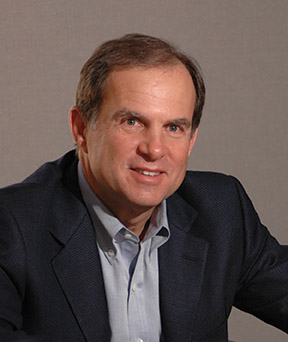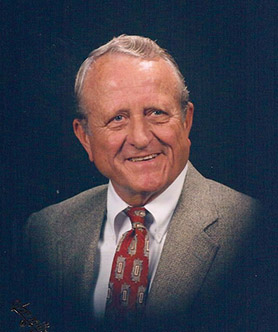The Permian Basin Petroleum Museum inducts four individuals who have made their mark on their industry and their region.
Two came from the upper Midwest, two from Houston. Their lives merged in dusty West Texas and over the years their rugged edges have been polished into a sparkling knowledge of the petroleum industry. That business acumen and desire to serve others melded the four men into industry leaders who were honored April 18 when they were inducted into the Petroleum Hall of Fame.
The event, sponsored by the Permian Basin Petroleum Museum, recognized State Rep. Tom Craddick, Timothy A. Leach, Scott D. Sheffield, and the late Deane H. Stoltz “as those who cherished the freedom to dare, and whose work and service helped build the Permian Basin,” according to the criteria for being selected.
The evening event, themed “Connections Refined,” drew an audience of about 700 people to Midland Center. Each honoree had a connection to at least one of the others and they all have been refined by the industry over the years in their efforts to grow a business or pass legislation that affects it.
Tom Craddick
 Tom Craddick was born in Beloit, Wisc., the third of four children and the only boy. His father, Russell Craddick, packed up the family and moved them to West Texas after he visited a friend and saw business opportunities. Craddick attended St. Ann’s School and then graduated from Midland High School, where his interest in politics was sparked.
Tom Craddick was born in Beloit, Wisc., the third of four children and the only boy. His father, Russell Craddick, packed up the family and moved them to West Texas after he visited a friend and saw business opportunities. Craddick attended St. Ann’s School and then graduated from Midland High School, where his interest in politics was sparked.
He headed to Texas Tech University in Lubbock, where he obtained a bachelor’s degree, and then a master’s, in business administration. He couldn’t contain his desire for politics and entered the state legislator’s race in 1968 at the age of 25 while a student in the doctoral program. In a state that was strongly Democratic and a city that housed only a few Republicans, Craddick opted for the GOP ticket.
These were the days before professional campaign managers and staffs. Craddick enlisted the help of Midlanders, some of whom were Democratic precinct chairmen. It was during this campaign that he met Deane Stoltz, who eventually helped pay off that campaign debt and supported him in later campaigns.
After winning that campaign, Craddick married a young woman he met at Texas Tech, Nadine Nayfa. She learned quickly that the State Legislature would play a prominent role in their marriage as they postponed the honeymoon to head to Austin for a special session.
Between sessions, Craddick has lived in Midland, where he and Nadine raised their two children: Christi and Tom. He owned a Dr Pepper distributorship before going into the petroleum industry, where he was a salesman for Mustand Mud/Newpark Resources for many years. He also owns Craddick Properties and Craddick, Inc.
During his 44 years as a state legislator, Craddick has worked tirelessly for his vision of needs in the Permian Basin. “I enjoy it,” said the dean of the House, who likes “the art of the deal.”
When elected Speaker of the House, Craddick had compiled a list of issues he wanted to tackle, including tort reform and homeowner’s insurance. Since tort reform passed, “25,000 new physicians have come to Texas.” And homeowner’s insurance reform took on a personal note when his wife informed him one day that he needed to move it higher on the list. “Our insurance company just canceled us this morning,” she explained.
He has served as chairman or vice chairman of the following House committees: Energy, Natural Resources, Joint Committee on Water Resources, Public Health, Ways and Means. Through his leadership, he has guided the state in adopting statutes and policies that promote responsible, thoughtful, and efficient production of Texas’ vast mineral resources.
As chair of the Natural Resources Committee, Craddick said he and John Montford met for breakfast weekly to create a plan that could be passed (“he said I never paid for breakfast”). The House Speaker job was 24/7, he learned. One morning at 2 a.m. he put on jeans and a T-shirt and went to a committee hearing and told the group they needed to get the bill out. Five minutes later, the bill had been passed.
He promoted tax incentives for enhanced oil production, for the development of high cost and unconventional natural gas resources, and for the promotion of oil and gas production where excess produced water threatens economic production of oil and gas reserves. He also encouraged severance tax reductions during a severe economic downturn when oil and gas prices collapsed in 1999. He has become the “go to” person in the State Legislature when other members need insight and advice about oil and gas issues.
In addition, Craddick has worked for the betterment of the region by supporting and delivering many of the State of Texas investment projects, which include the Wagner-Noël Performing Arts Center, Physicians Assistant, and other programs at Midland College, numerous improvements at University of Texas of the Permian Basin, the north reliever route, Loop 250 East and West, Texas Tech medical resident program at Midland Memorial Hospital, the Chaparral Wing at the Petroleum Museum, and renovations to the Blakemore Planetarium.
Tim Leach
 Timothy Allen Leach was walking in his father’s footsteps when he entered into his studies of petroleum engineering, but he veered off the main road and cut a new path that led to his starting a large independent petroleum company in Midland. He was born in 1958 in Fayetteville, Ark., where his father was working on his engineering degree at the university. Hired by Shell Chemical, Tim’s father took the family to Houston, Louisiana, Colorado, Ohio, and finally New York before settling in Houston.
Timothy Allen Leach was walking in his father’s footsteps when he entered into his studies of petroleum engineering, but he veered off the main road and cut a new path that led to his starting a large independent petroleum company in Midland. He was born in 1958 in Fayetteville, Ark., where his father was working on his engineering degree at the university. Hired by Shell Chemical, Tim’s father took the family to Houston, Louisiana, Colorado, Ohio, and finally New York before settling in Houston.
Leach graduated from Spring High School, where he participated in football, tennis, and track. After graduation in 1978, he opted for Texas A&M University, where he studied petroleum engineering. Unlike his father, Leach wanted something besides “getting up at 4:30 a.m. and going to work. I wanted more variety. I didn’t want to be a big company guy.” Instead, he wanted to learn more about the business side with the vision of someday running his own company.
After graduation in 1982, Leach accepted a job with Midland National Bank (later First City) and received his MBA at the University of Texas of the Permian Basin in 1984. Until 1989, he worked in the bank’s energy lending department, where he connected with people working in the petroleum industry. “I saw prospects all over the Permian Basin and the county and had to decide if there was enough collateral to support the loan,” he said.
During this phase, Leach met another young engineer named Scott Sheffield who worked at Parker and Parsley. “I was their loan officer,” Leach explained. In 1989, Sheffield offered Leach a job at his company. “It was a small company then,” Leach said. “I had a team of engineers and smart people who wanted to build a bigger company. Parker and Parsley did the type of deals that no one else wanted.” They took a $100 million company and grew it into a $2 billion company. Leach reached the position of executive vice president and member of the Executive Committee.
Then came the merger of Parker and Parsley Petroleum with Mesa and the formation of Pioneer Natural Resources. Leach didn’t want to move to Dallas with the rest of the employees and “Scott fired me,” he recalled with a laugh.
This became Leach’s opportunity to start his own independent oil company. Joining with other former employees, Leach formed Concho Resources in 1997 with private equity. “We were Permian Basin focused. We had the advantage of being headquartered in the Permian Basin and we had access to good people out here. We used the same philosophy as we had at Parker and Parsley,” Leach said.
Concho was sold in 2001 to Devon and Concho was started again. Using the same business plan, it grew and then was sold in 2004 to Chesapeake. Soon after the sale, Leach started Concho for the third time with 30 to 40 employees. “We showed up for work and had these employees and no prospects,” he said. That didn’t last long as his formula for success was implemented again.
In 2006, Concho experienced its “breakthrough event. We bought the oil and gas prospects of the Chase Family in Artesia, N.M.” In 2007, Leach took Concho public on the New York Stock Exchange.
The next year, Concho purchased Jim Henry’s company, Henry Petroleum, which had built a reputation for its very successful Wolfberry wells. “This gave us a toehold in the Wolfberry Play in Upton County and parts of Midland County. We also kept all of Henry’s employees.
“My idea is to stay here and provide employment. We didn’t want to leave Midland,” Leach said. “I felt Midland needed a big public company with its headquarters here.”
While continuing to drill in the Wolfberry, Concho then purchased New Mexico’s Marbob in 2010 for $1.6 billion. This purchase made Concho the largest oil producer in New Mexico, the second largest in the Permian Basin, and the sixth largest in Texas.
“We were at zero five years ago,” Leach noted. “This is such a great business. When the horizontal drilling boom started, we were at the right place at the right time. In 2012 we bought Three Rivers and those properties fit with us.”
Concho today employs 750 people and operates with a drilling budget of $1.6 billion on properties located in the Permian Basin. Other key figures put the company’s enterprise value at $12 billion, production in excess of 80,000 barrels of oil per day, and acreage at 1.3 million gross acres.
Meanwhile, Leach implemented a process of giving back to the communities where his employees live and work. During his early years in Midland, he watched how the former First National Bank supported the community through contributions of money and people. “I thought that was a good business strategy.” Among several he looked up to was Deane Stoltz, “a great example of optimism and philanthropy.”
With a $2.5 million budget set up for community re-investment, Leach targets brick-and-mortar projects, including a new library in Artesia, renovations at the Petroleum Museum, and expansion at the COM Swim Center. He also supports his alma mater, serving on the Dwight Look College of Engineering Council, and has been honored as a Distinguished Alumnus. Tim serves on the Midland Memorial Hospital Board of Trustees and Midland College Foundation Board. He was actively involved in the formation of Midland Classical Academy.
Leach met Amy Birdsall while in high school and the couple married after his college graduation in 1982. They have two sons, William and Patrick, and both are attending Texas A&M University. He enjoys hunting and fishing with family and friends and has a passion for land conservation, especially with his two commercial vineyards in Real County.
Scott Sheffield
 Scott Sheffield, born in 1952, stayed a few steps ahead of Tim Leach. His father also worked in the energy industry and was transferred by ARCO Oil and Gas from their Houston home to Tehran, Iran, where Scott lived during high school. Scott played football and was elected class president. After graduation, he entered the University of Texas at Austin to study pre-law before realizing his mistake and switching to petroleum engineering.
Scott Sheffield, born in 1952, stayed a few steps ahead of Tim Leach. His father also worked in the energy industry and was transferred by ARCO Oil and Gas from their Houston home to Tehran, Iran, where Scott lived during high school. Scott played football and was elected class president. After graduation, he entered the University of Texas at Austin to study pre-law before realizing his mistake and switching to petroleum engineering.
He spent one summer as an intern in the Permian Basin and vowed he would never return. But he did when his first employer after college—Amoco—assigned him to Odessa. Then came Houston for three years before receiving an offer in 1979 to join a start-up independent in Midland where he would be the only engineer. Within five years, he was named President and CEO of Parker and Parsley Petroleum, by then a $32 million company.
Under Sheffield’s leadership, the company accumulated an enviable position of acreage in the Spraberry Trend. He accomplished this by buying out many of the major oil companies who considered the Spraberry a non-economical field because their drilling and completion costs were high. Parker and Parsley, however, could drill and complete wells much cheaper than the majors and the acreage was worth more to the independent. When the Wolfberry came along, Pioneer was considered to be in an enviable position. Pioneer was one of the first companies to start horizontal drilling in the Spraberry and has led research on how to drill horizontal wells. As one businessman described it, “The Spraberry holdings are the magical wand of Pioneer Natural Resources.”
As the industry changed, so has Sheffield. One manager praised Scott’s ability to adapt and lead within an ever-changing landscape in terms of commodity prices, technological change, and the dynamics of worldwide geopolitics.
In 1991 the company went public and began trading on the New York Stock Exchange. In 1997, Sheffield was instrumental in creating the largest independent in the United States when Parker and Parsley merged with Mesa to create Pioneer Natural Resources. The headquarters were moved to Irving.
Since then, he has led Pioneer into profitable ventures in the deepwater Gulf of Mexico and coal bed methane in the Raton Basin of Colorado and is the largest independent to operate on Alaska’s North Slope. The company expanded into Australia, Canada, Argentina, and various African countries before pulling back and focusing on plays in Texas.
Today, Pioneer enjoys dominant positions in the Eagle Ford Shale and the Permian Basin plays. He has overseen an industry-leading initiative in the form of vertical integration in which Pioneer employs several of its own fracture stimulation fleets, drilling rigs, pulling units, frac sand, and other equipment to control costs.
Meanwhile, the company has grown to 4,000 employees, with 1,500 based in the Permian Basin, making Pioneer the largest employer in Midland. Plans call for a new office building to be constructed in north Midland.
The employees are loyal to Sheffield and his leadership. “Scott has consistently demonstrated commitment to his core principles of integrity, honesty, team building, innovation, fairness, entrepreneurship, and hard work,” noted one manager. Scott has built a reputation for the respect he shows to employees, communities, and the environment.
Scott and his wife, Kimberley, have five children and nine grandchildren. He enjoys tennis, snow skiing, golfing, fly-fishing, and traveling.
He also gives substantial support to the communities where Pioneer operates focusing on youth programs, and math and science education. On the receiving end in the Permian Basin are Midland College, UTPB, Odessa College, Midland Community Theatre, the Petroleum Museum, and the Bush Tennis Center.
Deane Stoltz
 The late Deane H. Stoltz never knew a stranger. An eternal optimist, he always had a kind word, a valuable piece of advice, or financial support for people and projects of all kinds. Born in 1929 in Ottumwa, Iowa, he reined in his desire to get a job in the oil industry until after he earned a degree in business at Northwestern University.
The late Deane H. Stoltz never knew a stranger. An eternal optimist, he always had a kind word, a valuable piece of advice, or financial support for people and projects of all kinds. Born in 1929 in Ottumwa, Iowa, he reined in his desire to get a job in the oil industry until after he earned a degree in business at Northwestern University.
The summer after his graduation, Deane worked as a roughneck in the Oklahoma oilfields for Phillips Petroleum. He returned home to marry Janet Frei and the couple returned to Dallas where Deane worked for Sinclair Oil and assisted in opening a new service station. He was called to Officer Candidate School in the U.S. Navy and the family lived in Norfolk, Va., until his discharge in 1955.
Then it was back to Texas and Midland where Deane found a job with James Noland as an independent landman and showed himself to be a fast learner. In 1962, Deane formed a partnership with Jack E. Brown and Cyril Wagner, Jr., that was titled Stoltz and Company. The trio was involved in drilling and production of oil and gas in the Permian Basin. By 1969 the name had evolved to Stoltz, Wagner, and Brown.
Certain partnership properties, primarily the Bagley Field in Lea County, N.M., were merged with Tipperary Land and Exploration, with headquarters in Australia. Stoltz served as president of Tipperary and later chairman of the board. During his tenure with Tipperary, Stoltz added enough oil production that it became the entire firm’s largest asset.
In 1989, Deane resigned to start his own independent oil and gas company, where he was active until he passed away in January 2006.
Stoltz left a legacy of community involvement and philanthropy that few people can match. His optimism never waned and guided him and Midland through booms and busts. Schools, hospitals, retirement communities, non-profit organizations, churches, and the arts are just a few of the organizations that were aided by his enthusiasm, support, and leadership. He helped energize the fledgling Republican Party in its early days and served as a delegate to state and national conventions.
He always had time for people whether they dropped by his office or called him. But he didn’t have time for long board meetings and began to wrap things up after 45 minutes.
Organizations soon learned if they wanted a successful fundraising campaign, they needed Deane Stoltz on their committee. After more than 30 years of United Way meetings, he was named a Lifetime member. One fellow volunteer noted that Stoltz “always entered the room with a smile, a joke, and a sincere good word for anyone sitting next to him. He made every meeting fun, he made the work interesting, and he made you feel good about doing it.”
A longtime friend commented that Deane cost him a lot of money over the years. When an envelope arrived with Deane’s name on it, the friend would call and ask how much Deane wanted from him.
Among his many honors, Stoltz received the Community Builder Award from the Midland Masonic Lodge, as well as the Outstanding Volunteer Fundraiser from the Permian chapter of the Association of Fundraising Professionals, and was named the 2006 Jefferson Honoree for his contributions in human services.
He and his wife Janet raised four children: Gary, Susan, Candace, and Julie, and he enjoyed his nine grandchildren, especially on the beach in La Jolla, Calif. He loved playing tennis, which he did every Sunday afternoon with a group of friends.
During his 50 years in Midland, Deane Stoltz changed the face of the petroleum industry by bringing together the forces of Jack Brown and Cy Wagner and his leadership at Tipperary. He also left a legacy that changed the face and philosophy of Midland and set the pace for the younger generation that includes honorees Sheffield and Leach.









